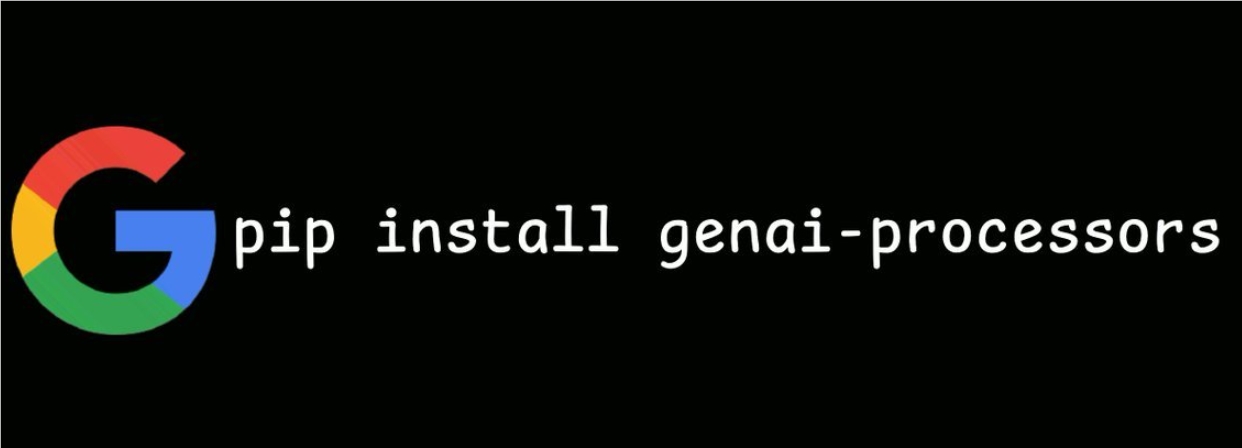Google DeepMind Open-Sources GenAI Processors for AI Workflows
Google DeepMind Open-Sources GenAI Processors for Real-Time AI Workflows
Google DeepMind has unveiled GenAI Processors, a new open-source Python library aimed at streamlining the creation of asynchronous, composable generative AI workflows. The tool is designed to enhance the development of complex multimodal applications by supporting real-time processing of audio, video, and text data. This release marks a significant step toward simplifying AI development for developers leveraging the Gemini API.

Key Features: Modularity and Asynchronous Processing
The library revolves around a unified "Processor" interface, enabling developers to break down intricate AI workflows into modular units. These units handle everything from input preprocessing to model calls and output generation, with support for asynchronous stream processing of multimodal data. Early tests indicate that the library leverages Python's asyncio mechanism to optimize concurrent execution, drastically reducing latency in I/O-intensive tasks. This makes it ideal for real-time applications like voice assistants or video processing tools.
GenAI Processors includes two built-in processors: GenaiModel for session-based interactions and LiveProcessor for real-time stream processing. With just a few lines of code, developers can build AI agents that integrate microphone and camera inputs, enabling rapid development of applications like real-time translation or smart assistants.
Technical Core: Streaming API and Concurrency Optimization
At its heart, GenAI Processors employs a streaming API that treats all inputs and outputs as asynchronous data streams of ProcessorParts. Each data unit—such as an audio segment or image frame—comes with metadata to ensure orderly processing. The library also minimizes "Time To First Token" through built-in concurrency optimizations.
The modular design allows developers to chain different processing units seamlessly, maintaining code reusability and maintainability. Currently, the library is Python-exclusive, but Google DeepMind has invited community contributions via its GitHub repository to expand functionality across more languages and scenarios.
Industry Impact: Accelerating Generative AI Development
The open-sourcing of GenAI Processors is poised to accelerate the development of high-performance Gemini applications, particularly in real-time multimodal processing. Compared to traditional frameworks, the library reduces complexity through its modular and asynchronous approach, making it well-suited for low-latency applications like intelligent customer service or interactive agents.
While still in its early stages, the project has garnered interest from developers eager for broader language support and pre-trained model integration. Google DeepMind has hinted at future updates that may include compatibility with other mainstream AI models.
Key Points:
- Modular Design: Breaks workflows into reusable units.
- Asynchronous Processing: Optimizes performance for real-time applications.
- Gemini API Integration: Tailored for Google's AI ecosystem.
- Community-Driven: Open-source nature encourages developer contributions.
- Future Expansion: Potential support for additional languages and models.